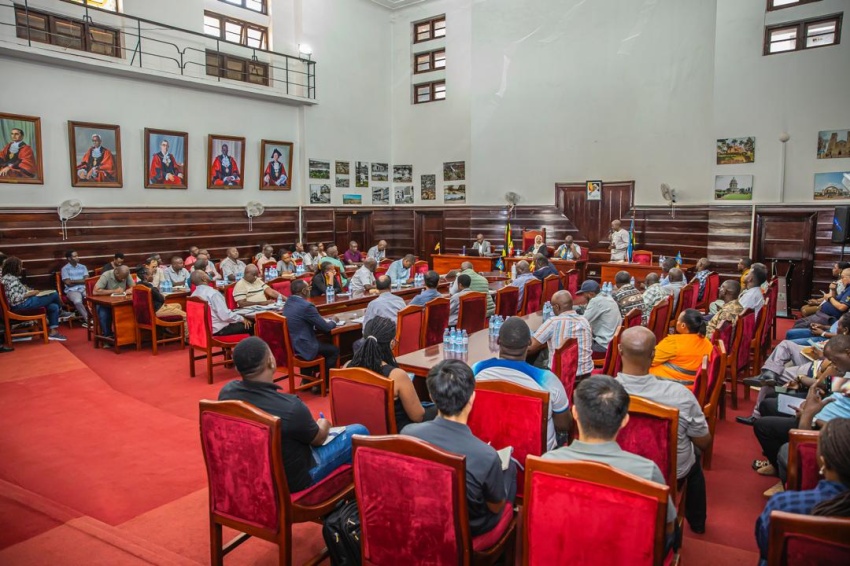KCCA DEVELOP CITIZEN’S SERVICE CHARTER FOR ENHANCED PUBLIC ACCOUNTABILITY
PUBLISHED — 16th, January 2024In a move to enhance accountable and transparent governance, the Kampala Capital City Authority (KCCA) has unveiled a draft Citizen's Service Charter, providing a comprehensive guide to the standards of service delivery expected from KCCA staff and contractors.
The charter, based on existing activities, policies, set standards, and clear guidelines within the Authority, aims to enhance the overall experience for customers by clearly outlining roles and responsibilities related to customer service activities.
The proposed draft of the KCCA Citizen’s Service Charter was presented to Authority Councillors during a one-day workshop at the Imperial Royale Hotel on Tuesday.
The initiative is a collaborative effort between KCCA, Innovations for Poverty Action (IPA), and WZB Berlin Social Science Center. The event saw the participation of personalities, including Lord Mayor Erias Lukwago, Councillors, representatives from the KCCA technical side, and the Ministry of Public Service.
Lord Mayor Erias Lukwago expressed gratitude for the commendable work undertaken by the various stakeholders in developing the Citizen's Service Charter.
He urged KCCA officials to be vigilant and promptly address grievances submitted by the public within stipulated time frames.
Emphasizing the importance of efficiency, he encouraged the delegation to streamline the process of citizens obtaining services and urged swift finalization of the Charter.
The Executive Director, represented by Deputy Director Strategy Management and Business Development Mr. William Epiaka, emphasized that the Charter serves as a scorecard for KCCA's accountability to Ugandans.
It aligns with the Authority's long-term work plan and aims to inform the public about the services provided by KCCA, setting expectations and standards.
"We are here to deliberate strategies on the charter, which will contribute to the goals of the document," stated Epiaka, pledging KCCA's commitment to incorporate public feedback and issues raised during the workshop into the final Charter.
Steven Bakulu, a Senior Management representative from the Ministry of Public Service, highlighted the government's responsibility to provide public services for the welfare of its citizens.
He emphasized the role of National Service Delivery Surveys in obtaining information on the availability, accessibility, utilization, and satisfaction of services provided by the government.
The objectives of the KCCA Client Charter, according to Bakulu, are to inform clients and stakeholders about the services KCCA provides, acting as a social contract between the authority and service recipients.
Professor Humphrey Macartan, the Director of WZB Berlin Social Science Center, noted the opportune timing for the charter's introduction, stating, "Many people see potential, but there is a need to close the satisfaction gap." He underscored the high demand for a Citizen's Service Charter and its potential to bridge the existing gaps in public service delivery.
As the discussions progress, the collaborative efforts between KCCA and its partners are poised to contribute significantly to fostering transparent, accountable, and citizen-centric governance in the capital city.
News & Announcements
23rd, April 2025
22nd, April 2025
17th, April 2025
14th, April 2025
11th, April 2025
11th, April 2025
10th, April 2025
9th, April 2025
4th, April 2025
1st, April 2025





















Development partners